So, hundreds of men and women get on the Guntakal Passenger every week for Kochi. “No one takes a ticket while coming to Kochi,” said Srinivasulu, a migrant labourer from Anantpur's Mudigubba mandal. "While going, half of us take tickets and the other half don't."
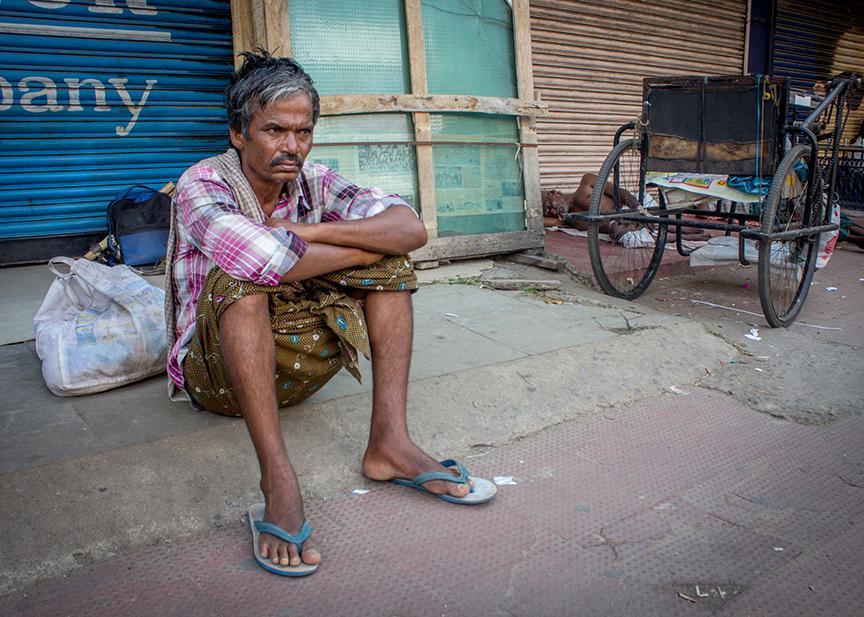
Srinivasulu was once caught, when he was returning to Anantpur. “It was raining in Kochi," he said. "I had filled the water bottle with half a litre of alcohol and was drinking on the train. Halfway, I remembered I didn't buy a ticket.” So Srinivasulu gave the Rs 8,000 he had earned in Kerala to a co-traveller and kept only Rs 80 with him, and waited patiently to test his luck.
At Katpaadi, the ticket collector stopped Srinivasulu.
“Where is the ticket?” the ticket collector asked him.
“I don’t have one,” Srinvasulu replied.
“Stand.” The ticket collector spoke in Telugu. “Come along, mama [loosely: brother-in-law].”
“Let's go, mama,” Srinivasulu replied confidently. The ticket collector took Rs 50 from him and let him off with a warning. Srinivasulu, drunk and swaying, promised never to travel on that train again.
As the ticket collector started walking away, Srinivasulu said, “Sir, I don’t have any money to eat.” The ticket collector abused him. He returned his money and let him go.
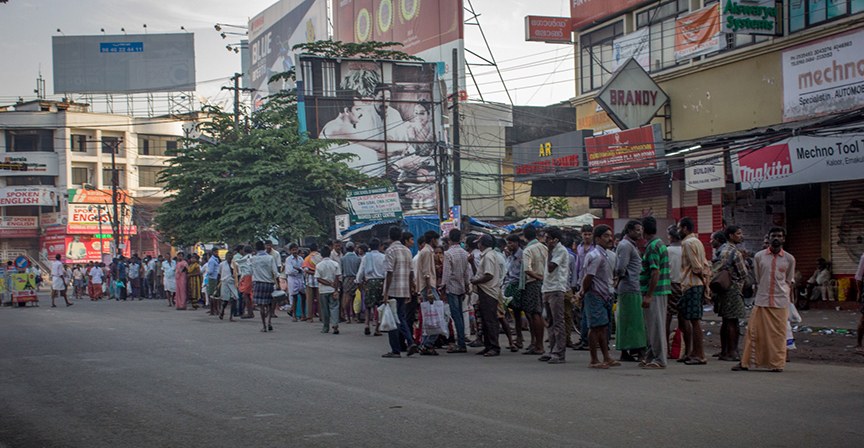
Migrant workers arrive at Kaloor Junction early every morning; they wait patiently on either side of the road, to be picked for work by contractors and land owners who build roads and houses with dinars they earned in the Gulf. On working days, they are up at about 6 am to go to the toilet, bathe, and line up along the road.
By 7 am, the junction is crowded. “Some months, there are easily over 2,000 of us,” a labourer said. People eat breakfast and pack lunch at one of the two makeshift roadside eateries run by families, often fellow Andhras. They serve muddha, (a staple item in Rayalaseema, prepared using ragi), pickles and rice.
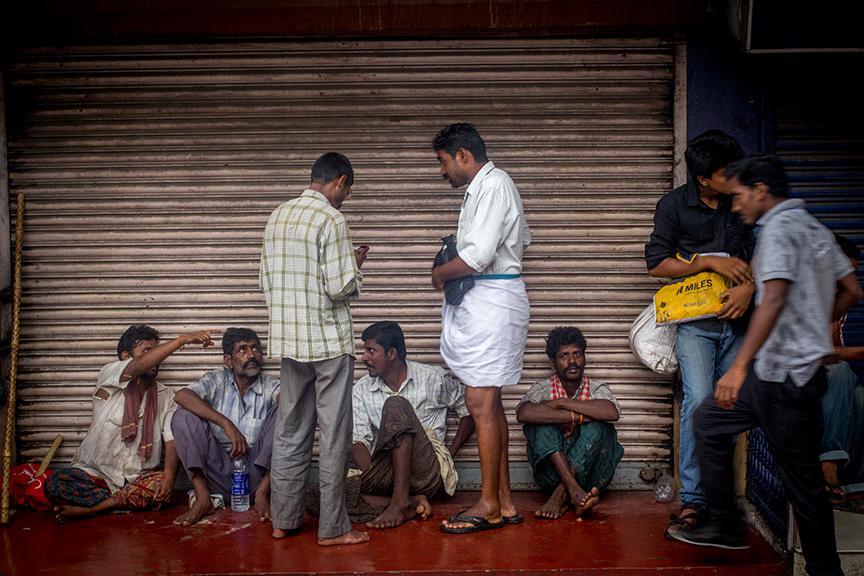
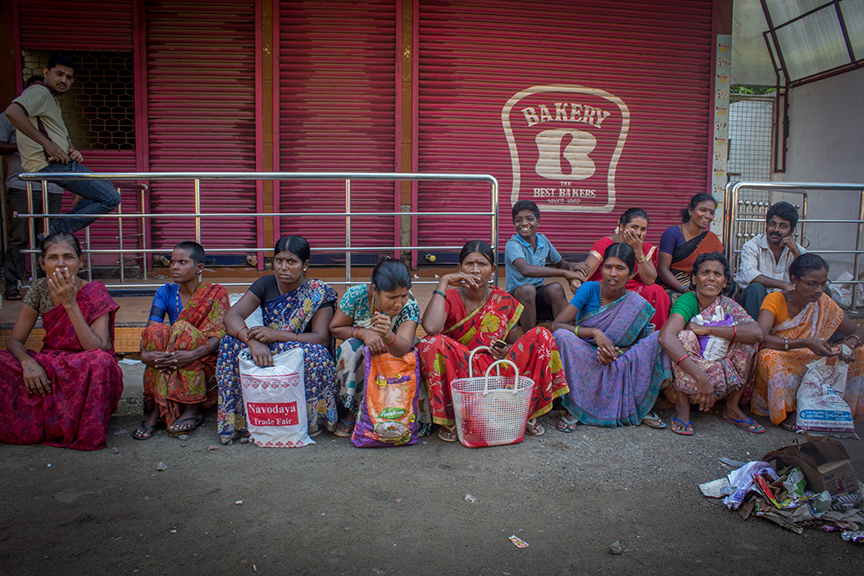
At the junction, not all days are equally promising. A labourer may not get picked for work. “When there is no work,” a migrant said, “we get drunk and sleep.” People come here because the daily wages in Kerala are at least three times higher. “In Anantapur, we get Rs 200 a day. Here it’s Rs 650, sometimes even Rs 750,” said Rangappa, who sells gujri (old, discarded stuff) in Anantapur. Many recollect how a landowner once paid them over Rs 1,000 for a small household job, plus alcohol and food.
Everybody living in the junction has a story. The stories are similar: a failed groundnut crop, thanks to far too many borewells that have depleted the groundwater, lack of rain and the government’s failure to compensate them for their losses. Besides, soaring debt, unavailability of (and nonpayment for) MNREGA work for many weeks makes things worse.
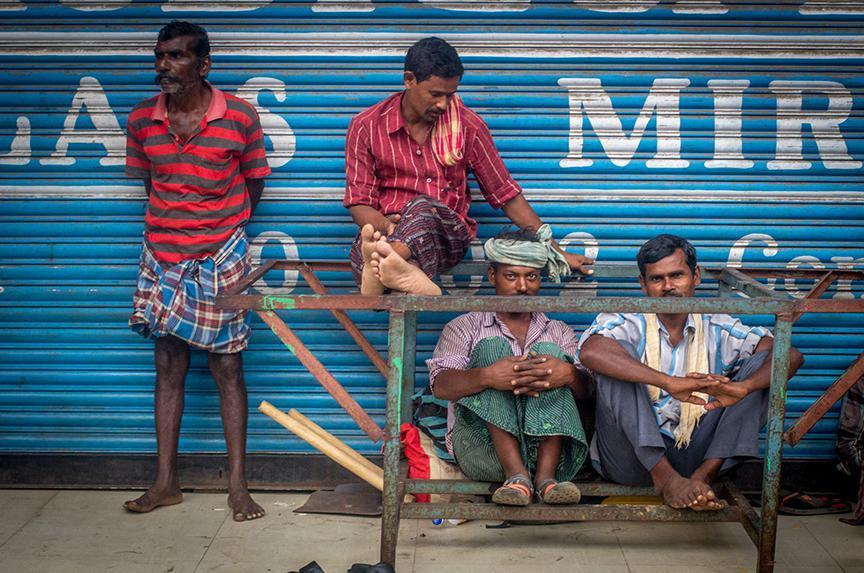
There are people of all professions here: painters, tailors, handloom weavers, an auto driver, an ex-CRPF jawan, an 82-year-old visually challenged man, and several students on summer vacation. For Rajashekhar, a 17-year-old from Kadiri, who had just written his Class X exams, the wages add few extra rupees to his family. For the degree students, the money from Kerala goes towards their college fees.

Balaji Nayak, 23, was studying for a BA in Telugu Literature, at Vivekananda college in Kadiri. He worked on Sundays to put himself through college. But once the work in the villages started disappearing, he was forced to drop out after the second year. “A stomach burning with hunger is the worst thing,” he said. Balaji eventually got married and currently travels between Kadiri and Kochi for work, supporting his wife and parents.
There are many students like him waiting for work here. “We have come after completing our degrees,” said a well-dressed student. “Some of us work here during holidays”.
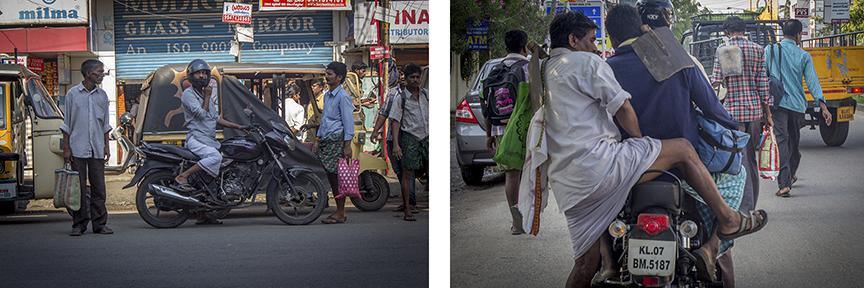
One by one, house owners and contractors arrive at the junction. Workers crowd around them. “Contractors scout around for an hour, carefully examine people and then pick labour, depending on their age and strength,” said Veerappa, a labourer. By 11 am, as it becomes clear that there is no more work for the day, the remaining labourers chat for a while, or sleep on a corner on the footpath. Some drink alcohol at secluded street corners.
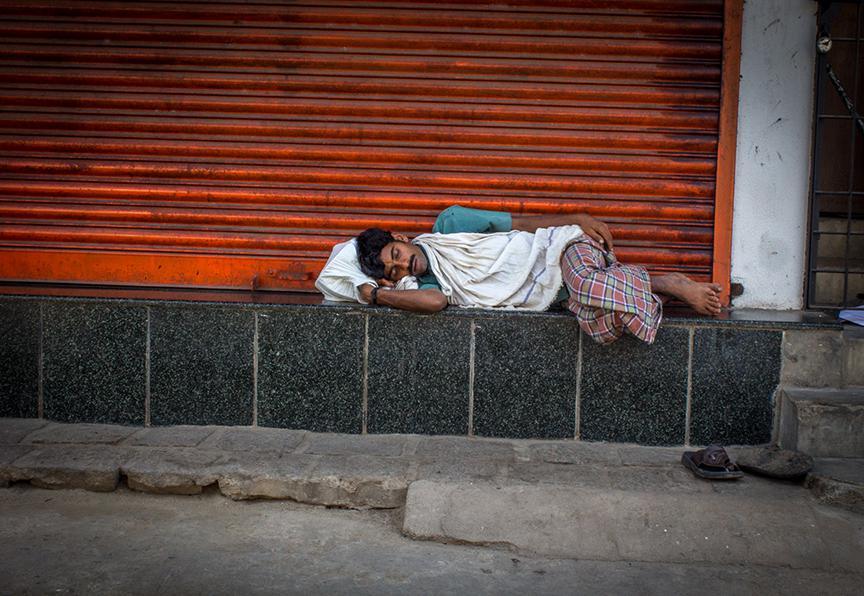
At around 1.30, some of the labourers who have not found work head to the local Shiva temple, maintained by the Vishva Hindu Parishad, where lunch is free. “The shivalayam saves a lot of lives,” a labourer said. “They give us Kerala rice, which is okay. They feed everyone. Most of us without work eat there.”
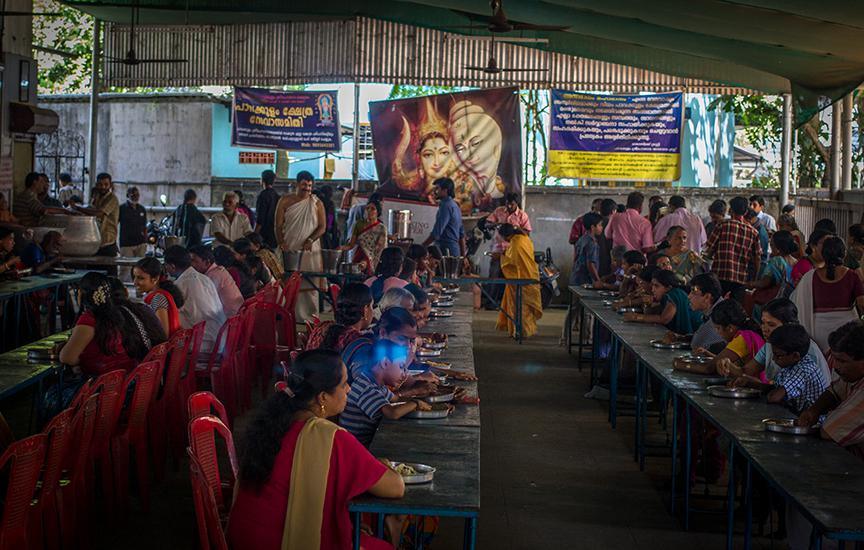
Once the workday is over, the labourers head back to their sleeping quarters. Some sleep on the footpaths at the junction and on the platform of the local bus stand. Some others sleep on the terraces of houses and in crumbling old rooms on which they pay daily rent. “From 5 pm lights are on, but not the fans. By 10 pm the lights go off and fans come on,” explained Ramakrishna, who sleeps on the terrace of a Malayali home. “We don’t have access to the switches. After we pay the rent for the day, the owner switches on the fan. If someone fails to pay, then they switch off the fan, even though it is for all 40 people who sleep here.”
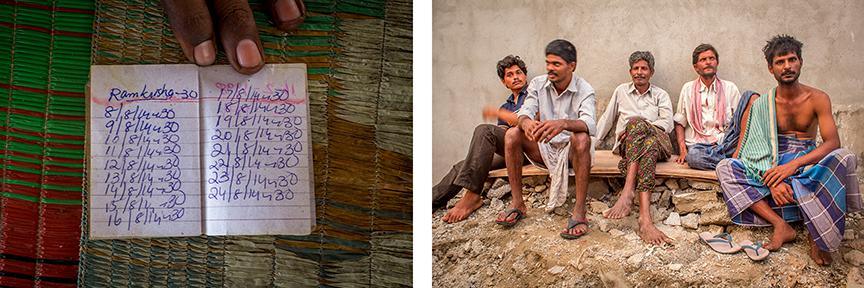
The people living on the streets face a different problem: mosquitoes. “But you don't get sick when they bite you,” said 62-year-old Venkatamma. For others, it takes alcohol to ignore the mosquitoes and the sultry Kochi weather, and fall asleep.

Each labourer at Kalooor Junction has a cycle of work. Most people stay for about three weeks and go back to the village for a week. Some stay longer, to repay old debts. “I haven't been home in a year,” said Narayanaswamy, a 40-year-old farmer from Mudigubba. “I send about Rs 2,000 every week”.

“Everyone has an obsession here,” said Srinivasulu. “Some are mad about cards, some are mad about alcohol, someone else is mad about the lottery.”
But the one thing they all have in common is uncertainty, as they line up on either side of the road at Kaloor Junction.
This piece has been used with the permission of The People's Archive of Rural India, where it first appeared.










